Like other spices, coriander is available year-round in stores, giving us its distinct aroma reminiscent of citrus peels and sage.
The fruit of the coriander plant consists of two seeds which, when dried, become the pieces we use as a spice. When raw, the seeds are yellow-brown in color with longitudinal stripes. Coriander is sold in whole grains or in powder form.
History of coriander
Coriander is considered both a spice and an herb, as both its seeds and leaves are used to add extra flavor to dishes. The fresh leaves are more commonly known as cilantro and bear a strong resemblance to the Italian spice parsley. But this is not surprising, since both are from the same plant species - Umbelliferae.
The name coriander is derived from the Greek word koris, which literally means bug. It may have earned this name, because of the foul smell it has when unripe. Its Latin name is Coriandrum sativum.
Coriander has been used as a spice since 5000 BC, making it one of the oldest spices used in the world. The regions of the Central East and the Mediterranean are considered to be the homeland of coriander and it has been known in Asian countries for thousands of years.
Today, the countries producing coriander in commercial quantities are the Russian Federation, India, Morocco and the Netherlands. The leaves of this plant, called cilantro, are a leading spice in the culinary traditions of Latin America, India and China.
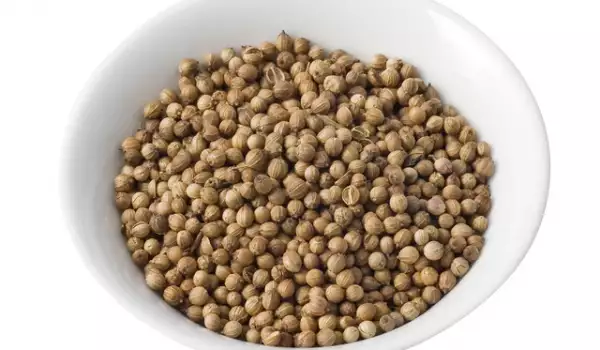
Ingredients of coriander
The fruit of the plant contain from 1 to 3% essential oil, the main ingredient of which is the alcohol linalool, thanks to which the specific aroma of coriander is felt. It also contains up to 20% fatty oil, up to 17% proteins and small amounts of alkaloids. Known amounts of coumarins and flavonoids have been found in coriander. Coriander is a good source of dietary fiber, iron, magnesium and manganese.
Choosing and storing coriander
• Fresh coriander leaves (cilantro) should look fresh, be dark green in color, without traces of yellow or brown spots;
• When you have the opportunity, buy whole grains of coriander, as the ground ones will lose their aroma faster;
• Coriander seeds or powder should be stored in a glass container with a lid, in a cool, dark and dry place;
• Cilantro can be frozen and then used in soups.
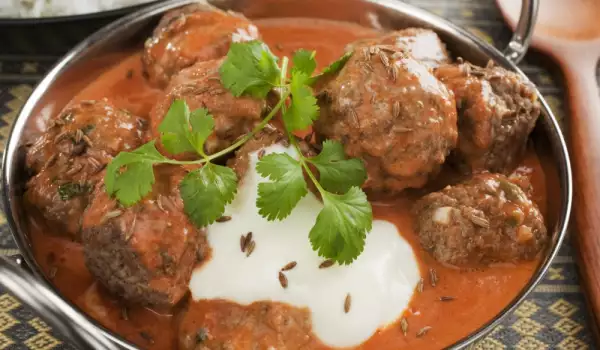
Culinary Uses of Coriander
The entire ground part and fruit of the plant are used in cooking. Like parsley, the green part of coriander is used as the main ingredient of salads and various meat dishes in the cuisines of the people who inhabit Morocco, Tunisia, Eastern Europe, India, North and Latin America.
As a spice, the dried fruit of coriander are used lightly roasted, but without fat, thus not losing their characteristic smell. Coriander seeds are put at the beginning of the preparation of the dish.
In the cuisine of European people, coriander seeds are used to flavor marinades in combination with allspice, cloves and bay leaf. They are also used in the preparation of mutton dishes and to get a stronger flavor they are combined with oregano, onion, garlic and black pepper. Coriander is also used to flavor curries.
• In a saucepan on low heat, mix vanilla soy milk, honey, coriander and cinnamon and you have a wonderful warm drink.
• You can make a healthy sauteed spinach by adding fresh garlic and coriander to it.
• Add cilantro to soups and baked goods.
• Use cilantro when making the broth you will braise the fish with.
• Adding cilantro to pancakes or waffles will give them a real oriental flavor.
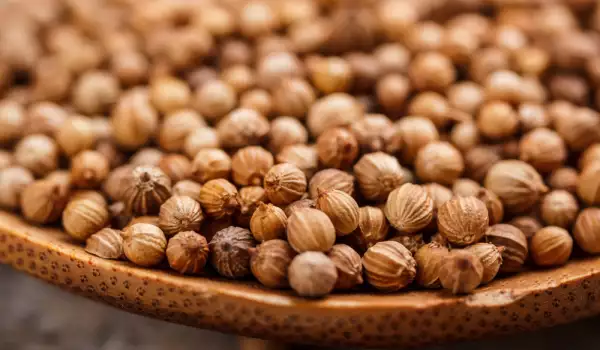
Benefits of coriander
Coriander seeds have an enviable reputation as health-promoting agents. In some parts of Europe, it is considered a traditional "anti-diabetic" plant and in some parts of India it is revered for its anti-inflammatory properties. In the US, thanks to recent research, it is respected as a spice that has cholesterol-lowering effects. Coriander is a phytonutrient-concentrated spice.
Many of the above effects of coriander can be attributed to its exceptional phytonutrient content and the active phenolic acid compounds it contains.
Coriander is protective against salmonella.
Coriander fruit stimulate the work of the digestive system, act as an appetite stimulant and antispasmodic. They also have a certain expectorant effect.
Most often coriander is used as a carminative, for lazy bowels, constipation and lack of appetite. Coriander has been shown to help treat ulcers and gastritis. Pain-relieving medicines are prepared from its seeds.
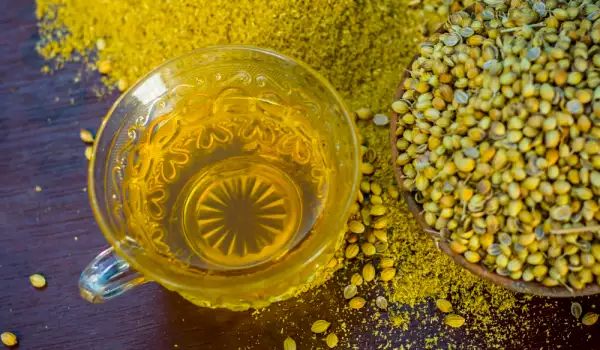
Coriander tea
As already mentioned coriander has many health benefits, but let's now pay special attention to coriander seed tea. Now we will enrich your knowledge about this spice by saying a few good words about the drink from it.
Benefits of coriander tea:
It supports cell regeneration and faster treatment of skin problems.
Helps smooth out pimples and other skin imperfections more easily.
It works well for colds and flu, strengthening the immune system. Coriander seed tea is a great drink on cold days.
It acts antibacterially and this effect is most strongly felt in the oral cavity.
It is useful in the prevention of anemia.
Helps to regulate menstrual pain and irregular cycle.
Coriander seed tea is a treasure of nature that can be useful to you in many situations.
Coriander oil
Let's take a look at some of the important health benefits of coriander essential oil now.
Activates libido
Coriander essential oil can make your married life heavenly. It arouses and increases the libido, as well as treats temporary impotence, frigidity, erectile dysfunction and general loss of interest in sex. It stimulates certain hormones that activate the sleeping Cupid in you.
Relieves spasms
Tired of endless cramps? Are you unable to give your best effort in sports due to frequent cramps? Then it's about time you tried coriander essential oil. This will relieve you of spasms of both the limbs and bowels.
Eliminates gas
Coriander oil helps to release gas easily. It is good to have a small teaspoon full of coriander oil and remove excess gas in your system. The product also prevents the formation of gas and that way it will give you a calm stomach.
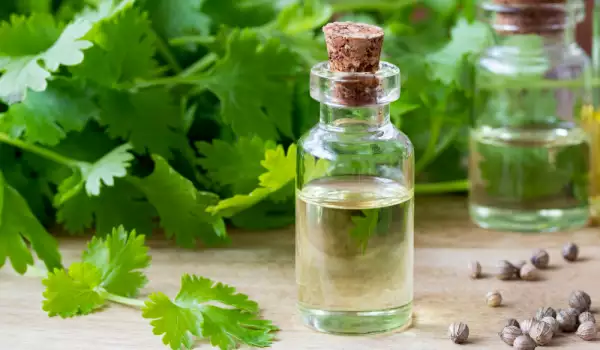
Helps purify the blood
Coriander oil cleanses the blood from toxins. Coriander helps remove toxins from the body and make you feel better in your skin.
Dulls painful sensations
Thanks to the components in its composition, coriander oil reduces pain. This oil has been found to be effective for treatment of toothache, headache and other pains in the joints and muscles, as well as those resulting from injuries or collisions. Reduces pain by desensitizing the affected area.
It has a refreshing effect
Coriander oil is a good deodorant. Reduces bad breath and removes odor from the mouth and body when used internally or externally. When consumed or ingested, the typical aroma of coriander oil mixes with sweat and combats body odor. This also helps prevent the growth of bacteria in the mouth and around the sweat glands and fights odor. It can be mixed with water, then applied externally or used as a mouthwash to get all these benefits.
Stimulates hormonal secretion
It stimulates various functions occurring in the body. It also fights depression and boosts your mood.
Improves digestion
Coriander oil has very good digestive properties. It provides quick relief from indigestion and flatulence.
Suppresses fungal infections
It inhibits the growth of fungi and helps treat fungal infections. This property helps treat a number of skin conditions, most of which are caused by fungal infections. It also helps treat the symptoms of dysentery.
Harms from coriander
Coriander fruit are not poisonous, but be careful - the fresh juice of the plant has a depressing effect on the central nervous system and can cause death due to respiratory arrest.
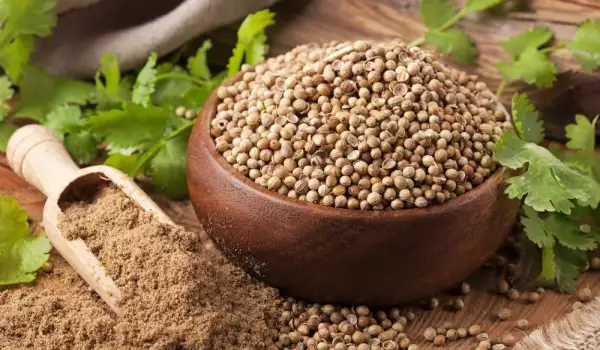
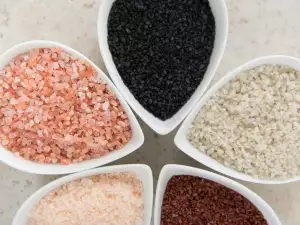
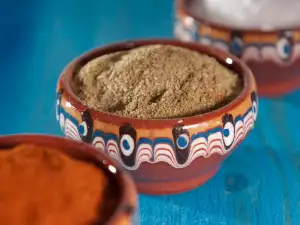
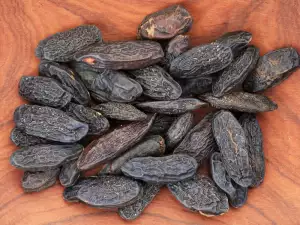
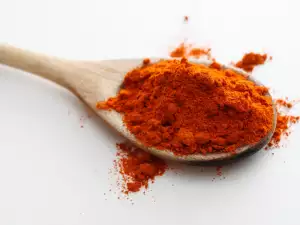
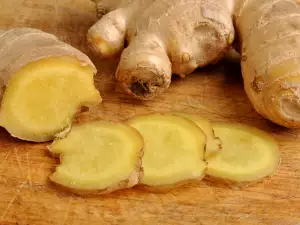
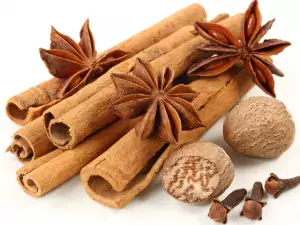

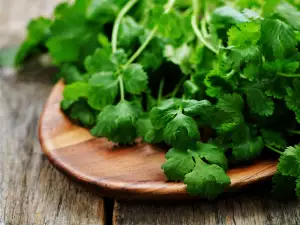
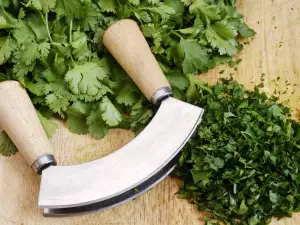
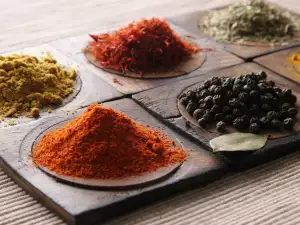

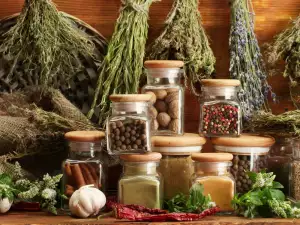
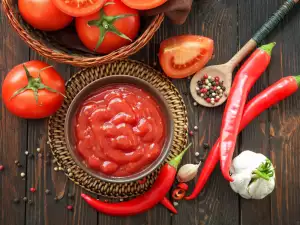
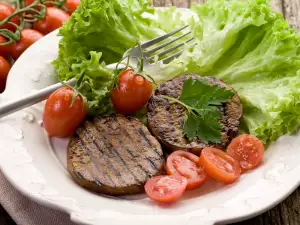
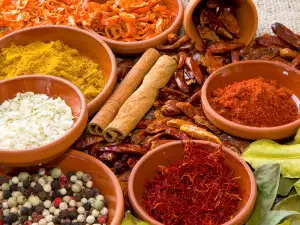




Comments